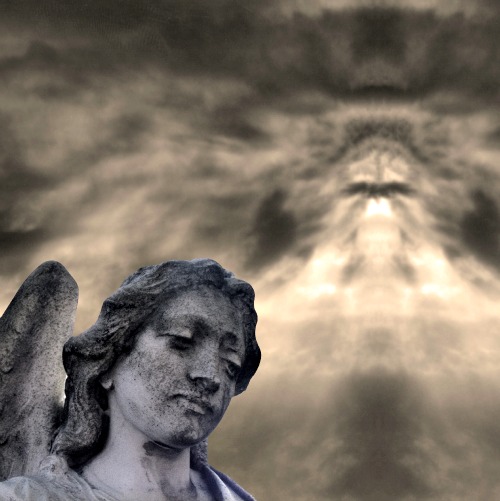The Apocalypse and Our Death Will Come Like a Thief in the Night; Are We Prepared?
COMMENTARY: Advent offers a perfect opportunity to reflect on and prepare ourselves for the end, of all days or our days..

I was raised in an “End Times” sort of church. My Sunday-school teachers taught me explicitly that the Apocalypse was near. Practically on our doorsteps, in fact! “You are the generation,” we were told, “that must be prepared to meet your God!”
I’m fairly sure we weren’t the only generation to hear this. But, at 13 years old, it seemed like heady stuff.
I’m a Catholic now, but I was bemused to realize a few years back that I still have an “End Times” comportment. A comportment, you understand, is not the same as a belief. I definitely don’t have any insider information on when the world is going to end. It might be tomorrow, or we may muddle along for 5,000 more years.
Nevertheless, the Mormons instilled in me the general sense that the curtain may drop on the grand drama of humanity more or less at any moment — and that impression lingers. I might find myself writing about demographic trends 50 years hence, and the thought will flit into my mind, “If we’re still here, that is.” I’ll make some reference to my future grandchildren and privately think, “If we make it that far.”
In some people’s minds, this confession might mark me as a crank, just one step shy of having cozy chats with little green men. I’m not worried about it, though. Again, I do not know how long this world will endure.
But it really can’t hurt to have a sense of urgency about it, and Advent is precisely the time for reminding ourselves of this fact. As we prepare to celebrate Christ’s coming to Palestine two millennia ago, we are simultaneously urged to prepare for Christ’s imminent return. He walked among us once. He will do so again. It may happen tomorrow; who can say?
It helps, of course, that Advent comes in the final days of the calendar year, when the days are short and cold. End-times predictions also feel more credible when the world generally seems to be in a bad way. We might think of this as the silver lining to war, pestilence and cultural decline. It puts us in a properly apocalyptic mood, disposing us to raise our eyes from the gloom of the present life to consider more eschatological horizons.
Of course, the world has grown awfully dark in the past without bringing the Second Coming. In the midst of the Black Plague, the Irish Potato Famine or the world wars of the 20th century, I’m sure many wondered whether this might be the end. It wasn’t. But you never know.
Several Bible passages warn of the importance of not falling asleep at the switch. The Six Foolish Virgins let their lamps go out, and, consequently, they miss the coming of the Bridegroom. The Laborers in the Vineyard blithely abuse the Master’s emissaries and, consequently, feel the heat of his wrath when he finally returns. Our Lord himself reminds us that he will come “like a thief in the night” and at an hour when we do not expect. (Perhaps that means he’ll be coming in the middle of summer or in the middle of a bull economy? Ah, well. Probably safer not to try to game the system.)
Even if we don’t see the end of all days, our own days will assuredly end — perhaps sooner than we expect. Preparing for the Apocalypse and for our own personal deaths involve similar salutary exercises.
Take the obvious steps to set your soul in order. Do you have sins on your conscience? Go to confession. (Remember: Skipping Mass without a grave reason is a sin.) Are there relationships you’d like to patch up? Start working on them. Have you been meaning to apologize for ... you know what? No time like the present, friend. After all, there might not be a tomorrow.
Above all, we should be mindful that when we pray for Christ to come, we really are praying for Christ to come. This isn’t one of those myths (in the spirit of Elvis, King Arthur or Frosty the Snowman) that we repeat mainly to tie a nice bow on a traditional story. This is a core Christian dogma. Believe it. Christ has come, and he’s coming back.
It is the hour now to awake from sleep. For our salvation is nearer now than when we first believed; the night is advanced; the day is at hand.
Rachel Lu teaches philosophy at the
University of St. Thomas in St. Paul, Minnesota.
- Keywords:
- advent
- end times
- last things
- rachel lu














